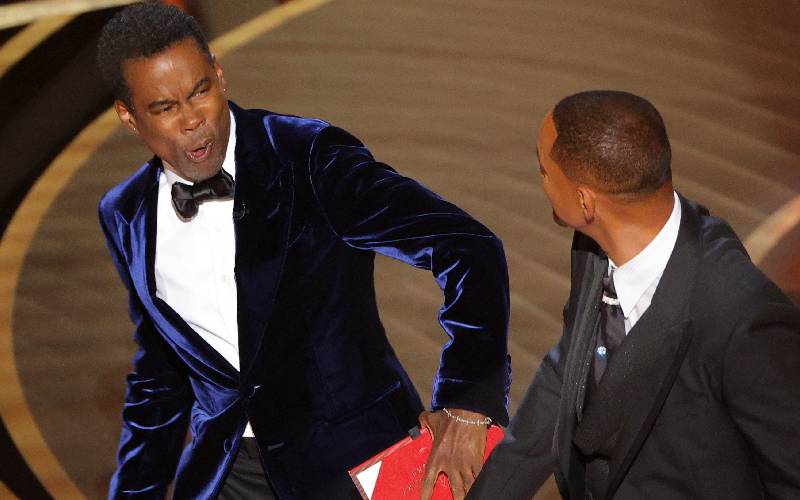×
The Standard e-Paper
Kenya’s Boldest Voice

Will Smith slapped Chris Rock on stage at the Oscars this past Sunday. [Reuters]
Despite issuing an apology to fellow actor, Chris Rock after slapping him on stage at the Oscars this past Sunday, the effect has already been felt. What many forget is, celebrities have a powerful impact on all of us, especially our children.